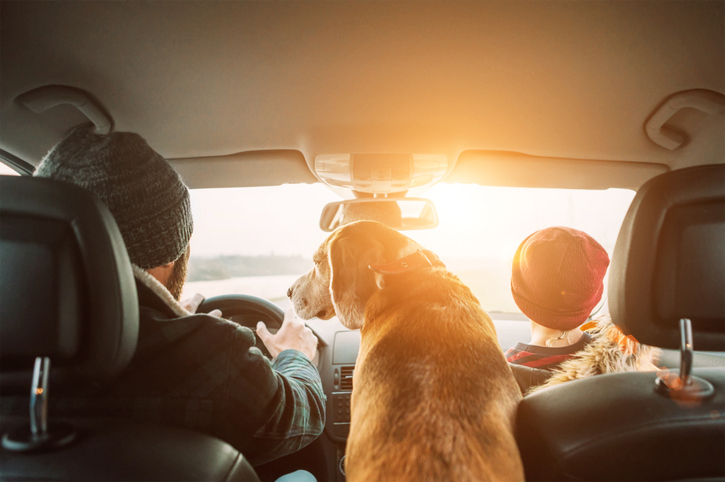Dogs can experience serious injuries from car accidents. Even a minor car accident could cause injuries to your pet. Some of the most common issues are fractured bones or lacerations, and even potential trauma to the head. Dogs, like people, can even get whiplash as a result of a car accident. They can also experience internal bleeding. Even if your furry friend looks fine, it is advisable to get them checked out by a veterinarian. Whether or not you can collect money to pay your dog’s veterinary bills and injuries will depend on a variety of factors.
Determining Liability: Who Covers Your Dog’s Medical Expenses
- At-Fault Party’s Liability Insurance: Texas is an at-fault state, meaning that the driver found at fault for causing the accident is usually responsible for any damages, including injuries to other drivers, passengers, or pets. If another driver is at fault, you might be able to claim the vet bills through their liability insurance.
- Your Own Insurance: If you have collision or comprehensive coverage and the other driver is either a hit-and-run case, or uninsured, your own insurance might cover the vet bills, subject to your policy’s terms and deductible. Some policies also offer medical payment coverage, which can cover medical expenses regardless of fault, and this might extend to veterinary costs. Always check your specific policy and speak with your insurance agent.
- Civil Lawsuit: If insurance does not cover the entire amount, or if the at-fault party is uncooperative or uninsured, you may consider pursuing a civil lawsuit to recover your losses. However, legal action can be time-consuming and costly, so you will need to weigh the benefits against the potential costs.
- Limits on Damages: In some situations, pets are considered “property” under the law. This means that the recoverable damages might be limited to the pet’s “market value” rather than the full extent of the vet bills. However, this can vary depending on the specific circumstances.
Some courts and jurisdictions recognize the sentimental value and the unique relationship people have with their pets, which can influence the outcome as well. For example, it is more likely that if your pet were to be killed in a car accident, the insurance policy would treat it as a form of property damage. It would pay for the replacement value of the pet, but not your non-economic damages for emotional anguish for the loss of your friend.
On this note, it is very interesting to review the Texas case of Strickland v. Medlen, where the Court of Appeals in Texas reversed the lower trial court becoming the first Texas court to hold that the family could recover intangible loss-of-companionship damages in the form of intrinsic or sentimental-value property damages when the Medlen’s dog died from being euthanized at a shelter. However, the Supreme Court of Texas reversed, holding that under established legal doctrine, recovery in pet-death cases is, barring legislative reclassification, limited to “loss of value, not loss of relationship.” (397 S.W.3d 184 (2013), Supreme Court of Texas).
- Documentation: If your pet is injured in a car accident, it is essential to document everything. This includes taking photos of the accident scene, gathering witness statements, saving all veterinary records and bills, and maintaining a log of any additional costs related to your pet’s injury.
Takeaway
It is important to consult with a personal injury attorney or one who specializes in animal law if you are considering pursuing a claim related to your pet’s injury. Ceja Law Firm, PLLC can offer guidance tailored to your specific situation and ensure that your rights with respect to your pet are protected. Contact Ceja Law Firm as soon as possible to schedule your free initial consultation to discuss your case.
